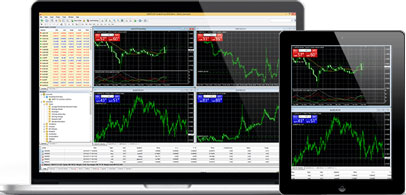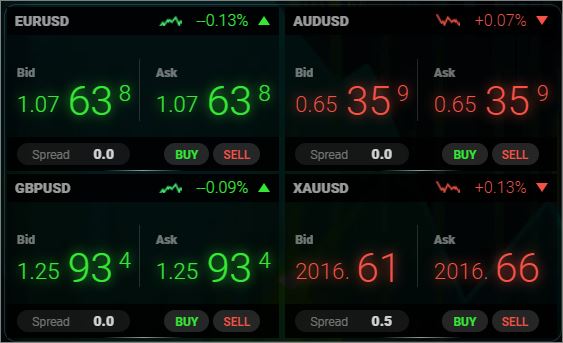The Foreign Exchange market is a global decentralized market for the trading of global currencies. Forex brokers provide access to the Foreign exchange market by linking retail and institutional capital to the liquidity of the ECN network of banks.
Understanding the Categories of Forex Brokers
There are two general categories of financial firms offering access to the Foreign Exchange market:
- No-Dealing-Desk Firms (ECN/STP Brokers)
This type of financial broker is electronically connected to the ECN network of banks or the Electronic Communications Network. That means they offer fast trading with low slippage and very tight trading spreads.
□ ECN brokers give their clients direct access to the ECN market; these are usually very large firms.
□ STP brokers route their client orders electronically to a liquidity provider.
□ Neither ECN nor STP brokers involve human intervention as they pass their clients' orders directly into the global currency market. This is why they are called NDD brokers (No-Dealing-Desk).
□ ECN/STP Brokers fully allow scalping/hedging and auto-trading
- Dealing-Desk firms (Agents or else Market Makers)
Dealing desks (DD) are financial firms that create a market within the market.
□ A dealing desk interferes with their client’s activity, and that creates a conflict of interest.
□ DD firms are charging high trading spreads and significant slippage on order execution.
□ A dealing desk may allow auto-trading, but usually, there are restricting policies for scalping/hedging.
FOREX BROKERS COMPARISON TABLE
These are some popular Forex brokers and their basic trading conditions.
| BROKER | TRADING | COMPANY | ACCOUNTS | MORE INFO |

|
US Residents: No
|
Online Since: 2009 Client Bank Account Segregation: YES
|
|
» REVIEW |
|
European Traders cannot open an account with IC Markets. |
US Residents: No
|
Founded in 2007 Client Bank Account Segregation: YES
|
|
Not for European Traders: » REVIEW |
How do you choose a Forex Broker?
These are the key questions to keep in mind when choosing Forex brokers:
-
Safety of Funds
(1) Is the Forex broker regulated by a trustable authority such as FCA UK, ASIC, or CySEC?
(2) Is the Forex broker headquartered in a safe country?
(3) Does the Forex broker operate for more than 3-4 years in the market?
(4) Is there a compensation scheme in case of insolvency?
-
Funding & Trading Options
(5) Are the available funding methods suitable to your needs (internet wallets, debit cards, etc.)?
(6) Are the available platforms suitable to your needs (WebTrader, MT4, MT5)?
(7) Is the available asset index suitable to your needs (Forex pairs, Metals, Indices, Crypto, etc.)?
-
Trading Cost & Other Fees
(8) What is the spread on liquid Forex assets such as EURUSD and GBPUSD?
(9) Are there any trading commissions?
(10) Are there any other fees? (for example, maintenance fees)
> FIND MORE
| □ INFORMATION | » Compare ECN/STP Brokers | » Selecting a Forex Broker | » Basics of a Trading Account |
| □ REVIEWS | » IC Markets | » RoboForex |




